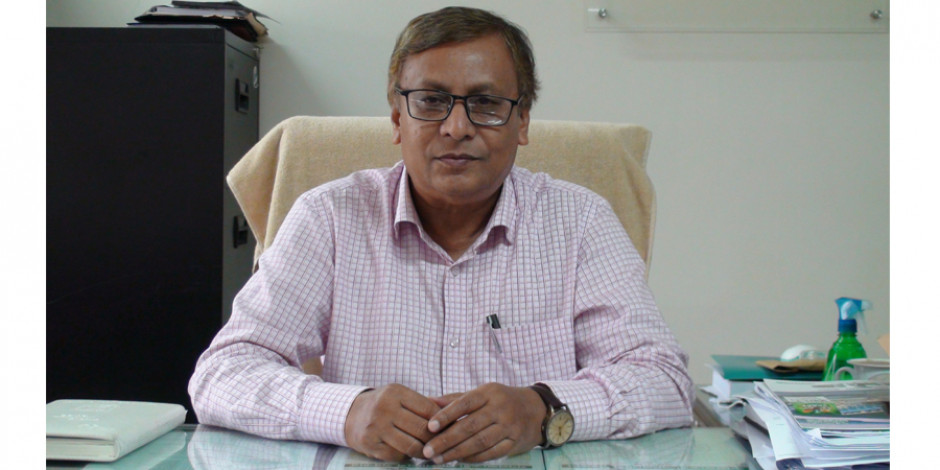
Dr. Md. Abdul Latif Akanda, Director, Oilseed Research Centre (ORC), Bangladesh Agricultural Research Institute (BARI), Gazipur. Photo: GFMM
Located in the Gazipur district the Oilseed Research Centre (ORC) is a
department under Bangladesh Agricultural Research Institute (BARI). Since its
establishment, the center has been conducting research to increase the
production of edible oil in Bangladesh. Since its establishment, the center has
been researching several issues including increasing the production of edible
oil in Bangladesh. Recently, Grain Feed & Milling Magazine (GFMM) conducted
an interview with the Director of this center, Dr. Md. Abdul Latif Akanda. The magnetic part of that interview is released for
readers.
Grain Feed & Milling Magazine
(GFMM): What are the oilseeds of Bangladesh? Which oilseeds are you
researching?
Dr. Md. Abdul Latif Akanda: Among the oilseeds of Bangladesh are mustard,
groundnut, sesame, soybean, sunflower, linseed, Niger, Safflower, coconut,
veranda, lemongrass, etc. But we work with 8 of these seeds. 5 of them are
major, and 3 are minor. The main 5 are mustard, groundnut, sesame, soybean, and
sunflower.
GFMM: Briefly
describe the activities of your Oilseeds Research Centre.
Dr. Md. Abdul Latif Akanda: The activities of our oilseed research center are; Genetic
enhancement of oil crops through the collection and maintaining local & exotic
germplasm, Development of high-yielding varieties suitable for existing
cropping patterns, Development of modern production technology, Development of
plant protection measures, Quality studies of different oils, Breeders seed
production and distribution, TLS production and distribution, Technology
transfer through training, block demonstration, distribution of leaflets,
booklets and through mass media.
GFMM: Tell us
about your research methodology and development area.
Dr. Md. Abdul Latif Akanda: We generally carry out our research activities in two
ways. First, we collect improved germplasm from our own country's breeds. Then do
research on them. If our own germplasm does not seem superior, then bring in
germplasm from abroad. Then we cross the country's germplasm with foreign
germplasm. We do 5/6 trials at different stages, in different mediums. Then
approve the selected variety of the highest quality. It takes about 12 years to
develop a new variety. We are trying to minimize this time. Our research and
development areas are; Variety development, Crop, and Soil management, Disease
management, Insect management, Biochemical studies, Technology transfer,
Training, Demonstration, Seed production, Seed distribution, On-farm trials,
etc.
Comment Now